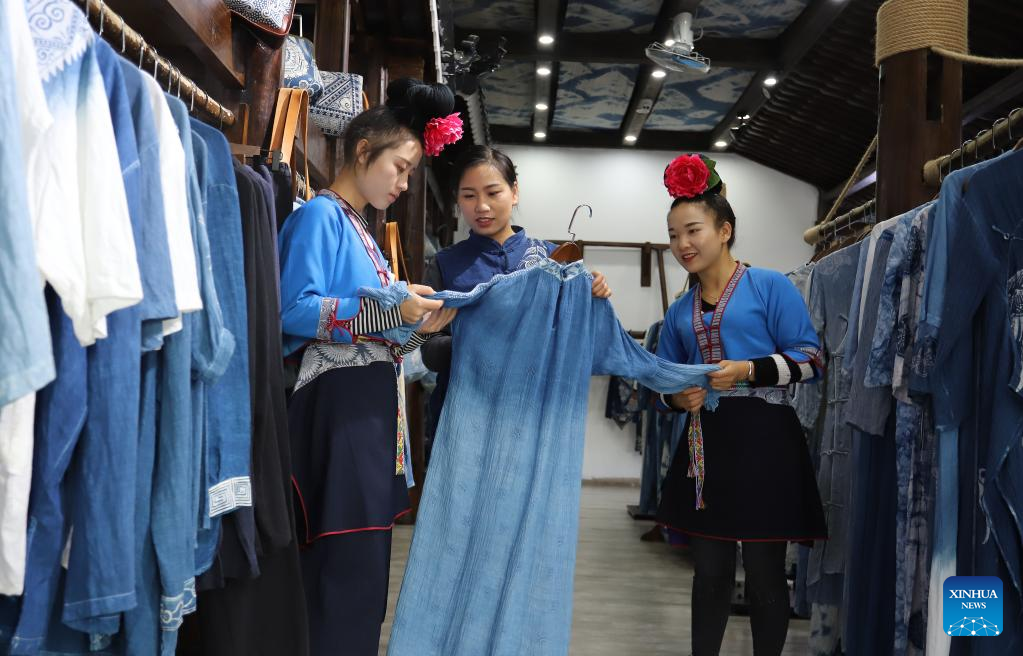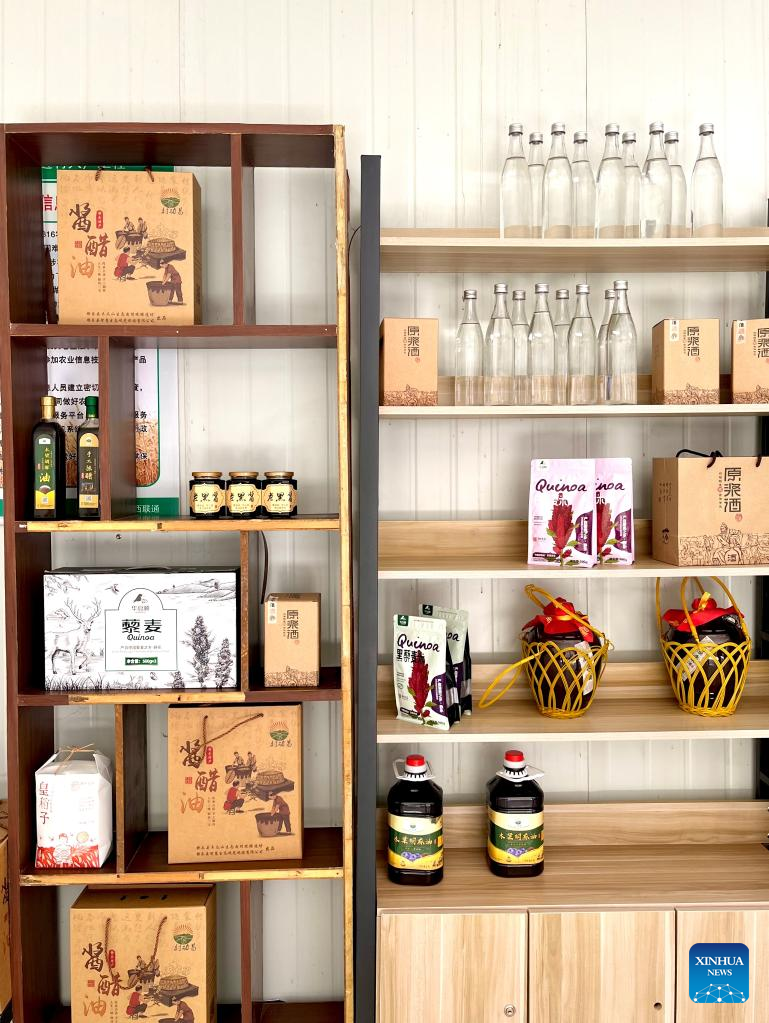
This photo taken on March 1, 2023 shows a homestay at Muguashan Village in Jingle County, north China's Shanxi Province. (Xinhua/Wang Hao)
TAIYUAN, March 8 (Xinhua) -- Yao Yanmei, a thin woman with slightly dark skin, is busy sorting goods in her sesame oil workshop in a farmyard in north China's Shanxi Province. In her early thirties, she is already a well-known figure in her village.
From growing rice and processing agricultural products to live-streaming marketing and opening a homestay, Yao's entrepreneurship in her hometown has benefitted more than 600 people from about 300 households.
Yao is one of many women in China's rural areas who use their innovation and hard work to bring about changes and is part of a larger trend towards greater involvement of women in rural vitalization.
Yao grew up in a small mountain village in Duanjiazhai Township in Shanxi. After graduating from the university and working for a few years, she returned to her hometown and led the effort to create rice paddy art, drawing inspiration from local paper-cutting.
She also sells agricultural products from the mountains to customers across China through livestreaming and hosts a homestay that receives urbanites looking to experience life in the countryside.
"Rural communities need such young people with local attachments and innovative spirit to play a leading role in driving rural economic development and improving farmers' employment and income," said Yang Fang, a local official in Duanjiazhai Township.
The gradual improvement of China's digital economy infrastructure increased female entrepreneurship and employment opportunities under digitalization. The increased level of employment of women with lower education levels has expanded the space for women's employment in China, according to the BRICS Women's Development Report 2022.
In recent years, with the deepening of China's rural vitalization and policies to increase female engagement in the workforce, women are playing an increasingly prominent role in the process.
In the mountainous village of Paimo in southwest China's Guizhou Province, Zhang Yiping, 29, led women to set up a batik cooperative. Their products, made with distinct ethnic minority features, have been sold to many domestic and overseas markets.
Zhang learned batik from her mother at an early age. As the local government pushes for rural vitalization and cultivation of local talents, she took the initiative to set up the cooperative, which helped boost the income of nearly 200 women.
"The cooperative is close to home and has steady orders. I can earn more than 3,000 yuan (about 431 U.S. dollars) a month," said Wang Jianhou, a local woman who has worked in the cooperative for six years.
China Women's Development Foundation has introduced a project for empowering women to contribute to the cause of rural vitalization. The project provides inclusive training for women in e-commerce and video creation and offers venture capital support and other resources for female entrepreneurs.
In Yao's case, she received financial support from the foundation and traffic support from livestreaming platforms.
"I see an increasingly broad prospect for distinct rural industries, live-streaming marketing, and e-commerce in rural areas. I have more confidence and passion to lead our rural sisters to prosperity," Yao said. ■

Zhang Yiping (C) and other members of a batik cooperative check a batik skirt at Paimo Village of Yangwu Township in Danzhai County, southwest China's Guizhou Province, Oct. 16, 2019. (Xinhua)

This photo taken on March 1, 2023 shows samples of products that Yao Yanmei promotes via live-streaming at Muguashan Village in Jingle County, north China's Shanxi Province. (Xinhua/Wang Hao)



